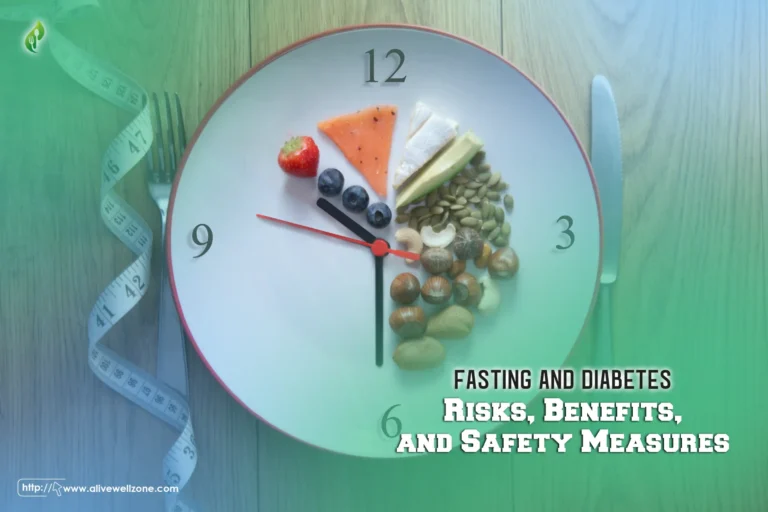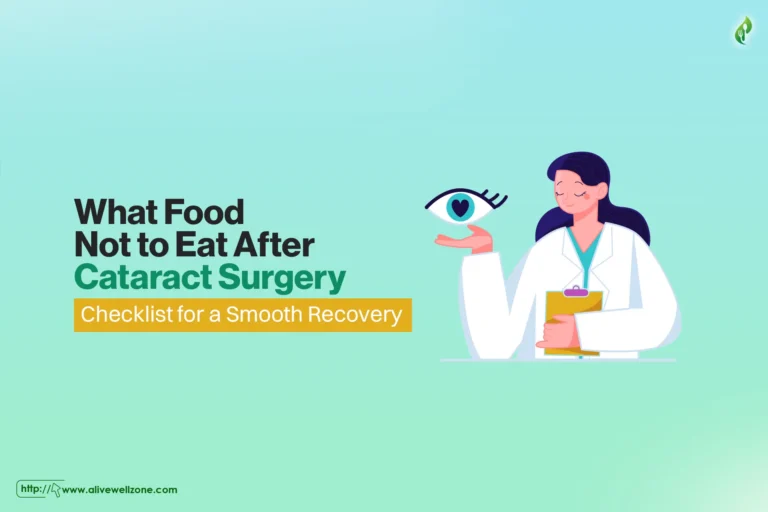
Last Updated on November 19, 2024 by Helena Akter
Ever felt sluggish or foggy-minded after skipping breakfast? Well, Carbs might be the missing piece! Often demonized in fad diets, carbohydrates are important for our well-being. But why do we need carbohydrates in the first place?
We need Carbohydrates are important because they give us energy, help our brains work, make us feel good, and help our muscles recover. They also keep our hearts and digestive systems healthy, help us stay hydrated, and strengthen our immune system.
Moving forward, you’ll learn the types of carbs, their role in your body, and what happens if you don’t take them. So, let’s begin on this insightful journey together!
What are Carbohydrates?
Carbohydrates, or carbs, are one of the three main energy sources, alongside protein and fat. These important nutrients, known as macronutrients, are required by our bodies in large amounts daily.
Carbs break down into glucose during digestion, which our cells use for energy. While you might think of carbs as just bread, potatoes, or rice, most foods we eat contain some carbs.
They provide the energy our bodies need and support various bodily functions. That makes them a vital part of our diet and overall health.
What are the Types of Carbs?
There are three primary types of carbohydrates, each providing energy and some offering vital nutrients for your health.
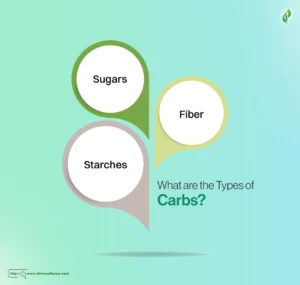
Sugars
You can find sugars naturally in fruits, vegetables, and dairy products. It’s okay to consume these natural sugars. However, you should limit your intake of ‘free sugars,’ which are added to foods or present in fruit juices.
Consuming too much free sugar can lead to weight gain from excess calories and increase the risk of tooth decay.
Fiber
Fiber is a carbohydrate that your body can’t digest. It’s important for controlling blood sugar levels, supporting heart health, helping digestion, and helping you feel full.
Additionally, you can find fiber in fruits, vegetables, legumes, and whole grains, making it a crucial part of a balanced diet.
Starches
Also known as complex carbohydrates, starches are long chains of sugars. Your body takes more time to break them down into simple sugars for absorption than it does for regular sugars.
You can find starches in foods like pasta, rice, bread, cereal, corn, and potatoes. These foods provide long-lasting energy because they digest slowly.
Why Do We Need Carbohydrates?
Carbohydrates are vital for your health and well-being. They supply valuable energy to your body and brain. By understanding the role of carbs, you can make informed dietary decisions.
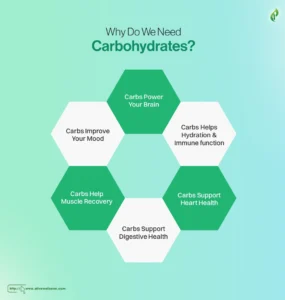
Carbs Power Your Brain
Reducing your carb intake can impact your ability to concentrate and focus. Carbs are key to brain function. A 2018 review in the Journal of Pediatric Gastroenterology and Nutrition revealed that 20% to 25% of your body’s resting glucose consumption fuels your brain.
Complex carbs, like whole grains and high-fiber foods, help maintain steady blood sugar levels, leading to consistent concentration. On the other hand, relying on refined carbs, such as candy bars, can cause quick blood sugar spikes and drops.
And it can lead to a state often referred to as ‘brain fog’.
Carbs Improve Your Mood
Carbohydrates can help increase the production of serotonin, a chemical in your brain that makes you feel good. A meta-analysis in the Journal of Affective Disorders in 2023 found that diets low in carbs might lead to increased anxiety.
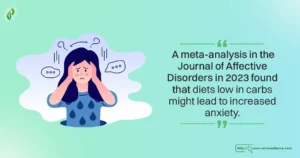
Similarly, a 2009 study in the Archives of Internal Medicine found that diets low in carbs were linked to higher levels of depression, anxiety, and anger compared to diets high in carbs and low in fat.
Carbs Help Muscle Recovery
If you’re an athlete or lead an active lifestyle, carbohydrates are essential for your energy needs. During physical activity, your body uses glycogen, which is a stored form of glucose from carbs.
A review in Current Opinion in Clinical Nutrition & Metabolic Care in 2023 found that restricting carbs can hinder muscle growth and anaerobic performance. Moreover, a 2018 study in Nutrients emphasized the importance of consuming carbs after a workout to replenish muscle glycogen and improve exercise capacity.
Carbs Support Digestive Health
Carbohydrates, especially those rich in fiber, are great for your digestion. Foods such as whole grains, vegetables, fruits, and legumes are excellent sources of both carbs and fiber. Soluble fiber, which can slow down digestion, is beneficial for those with diarrhea.
Conversely, insoluble fiber, found in wheat bran, vegetables, and whole grains, can speed up digestion and add bulk to your stool, helping to ease constipation.
Carbs Support Heart Health
Certain carbohydrates can improve your heart health by reducing cholesterol levels, reducing stroke and heart disease risks. Moreover, heart-healthy foods can help you too.
However, soluble fiber, present in oats, barley, and beans, has a 5% reduction in “bad” LDL cholesterol if you increase your intake by 5 to 10 grams daily. Furthermore, eating whole grains like whole-wheat bread, oatmeal, and quinoa is associated with lower LDL cholesterol and higher “good” HDL cholesterol.
Carbs Helps Hydration and Immune function
Carbohydrates are important for hydration protecting you from the adverse effects of dehydration. They help your muscles and organs hold onto water, allowing your muscles to work longer without getting tired and ensuring your organs function properly.
Also, getting enough carbohydrates can boost your immune system, keep you healthy, and help prevent illness.
What Happens to Your Body When You Avoid Carbs?
Carbohydrates are key nutrients. Health experts don’t usually suggest removing them entirely from your diet unless a medical professional recommends it.
So, what changes can you expect in your body if you skip carbs?
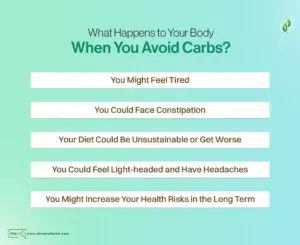
You Might Feel Tired
Carbohydrates fuel most of your daily activities and bodily functions. Without them, you might feel more exhausted, and hungry, and find it hard to focus. If you exercise regularly, you might struggle to keep up with your usual performance, feeling slow and worn out.
You Could Face Constipation
Carbohydrates are rich in starch, fiber, and water. Without them, getting the necessary amount of fiber can be tough. Fiber helps form stool and absorb water in the colon, making it easier to pass.
If you cut out carbs, you might face constipation and other digestive problems, as fiber also supports the growth of beneficial gut bacteria.
Your Diet Could Be Unsustainable or Get Worse
Cutting out an entire food group leads to a very limiting diet, which is difficult to keep up in the long run. Studies show that such restrictive diets often lead to a lower intake of phytochemicals, which help protect against cancer.
As per a 2020 review in Nutrition Reviews, the quality of carbs matters more than the quantity. You should choose whole grains, fruits, and vegetables over sugary drinks, candies, and baked goods.

You Could Feel Light-headed and Have Headaches
Your brain usually uses glucose, which is easily supplied by carbohydrates. When you stop eating carbs, your body starts breaking down fat into ketones for energy. This change puts your body into a state called ketosis, leading to higher ketone levels.
Besides, Ketosis can cause side effects like dizziness, tiredness, weakness, and headaches.
You Might Increase Your Health Risks in the Long Term
Some studies have found a connection between low-carb diets and a higher death rate. A study in 2022, published in Current Developments in Nutrition, suggests that these diets might increase LDL levels, also known as “bad cholesterol”, possibly due to a lack of fiber.
Also, restricting carbohydrates for a long time has been linked to kidney damage, osteoporosis, and less physical activity. However, studies sometimes contradict one another, and more research is needed to confirm the long-term safety of removing carbohydrates.
Final Words
Carbohydrates are needed for energy, brain activity, mood enhancement, muscle recovery, digestion, heart health, hydration, and immune function. They’re vital nutrients that support our daily tasks and overall health.
If you avoid carbs, you might experience tiredness, constipation, headaches, and long-term health issues. Looking ahead, you must have good-quality carbs like whole grains, fruits, and vegetables.
By understanding the role of carbohydrates, you can make smart food choices that improve your health and keep your energy levels up. So, make sure to include carbs in your diet wisely to maintain a balanced and healthy lifestyle.
FAQs
Why do carbohydrates make you sleepy?
Carbohydrates make you sleepy because they help the body absorb tryptophan, an amino acid found in many protein-rich foods that help produce serotonin. Besides, eating a meal high in both protein and carbs can increase serotonin levels, leading to feelings of drowsiness.
Are carbohydrates hydrophobic?
No, Carbohydrates are not hydrophobic. They’re polar substances, commonly known as sugars, which dissolve in water. Because of their polar groups, carbohydrates are hydrophilic, meaning they are attracted to and mix well with water.
Do carbohydrates make you tired?
Carbohydrates can make you tired because they’re quickly absorbed and converted into glucose for energy. This rapid absorption can cause a quick spike and subsequent drop in blood sugar levels, leading to feelings of energy depletion and tiredness.
Can I take carbohydrates if I have diabetes?
You can eat carbohydrates if you have diabetes, but you must manage your intake. It’s better to consult a doctor or dietitian to plan meals that control blood sugar levels. Plus, The American Diabetes Association recommends 45 to 60 grams of carbohydrates per meal.

